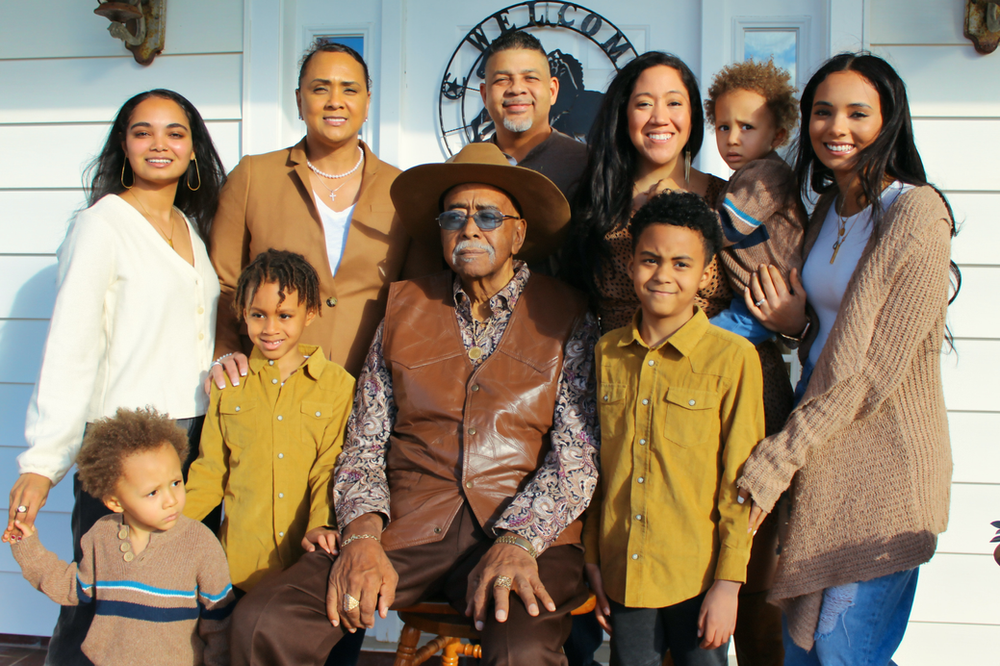The holiday season, with its shimmering lights, festive decorations, and the warmth of shared traditions, is viewed as a special time of the year that brings families together. For many, it is a season marked by joy, gratitude, and the embrace of loved ones.
On the other hand, the holidays can also represent discomfort among individuals who are reunited with tense relationships (that are sometimes unresolved) between family and friends. Being put in these emotionally unsafe environments can cause individuals to feel great distress, and the holiday season may become one that’s anxiously anticipated and hard to enjoy. This is when the importance of setting boundaries with family members comes into play. Boundaries are essential for establishing healthy relationships as it allows for individuals to feel more comfortable and safer.
In this article we will explore the importance and benefit of creating boundaries and also provide 8 specific ways you can communicate boundaries effectively this holiday season.
Why Are Clear Boundaries Important?
Establishing boundaries provides many benefits to an individual’s mental health and wellbeing. When boundaries are not set, several challenges may arise such as heightened stress levels, resentment, frustration, burnout, conflict, and strained relationships.
That being said, we created a list that reviews the many benefits of strong boundary setting practices –
Benefits of Setting Boundaries
Preserving Personal Well-being – Setting boundaries ensures that you prioritize your mental and emotional health. It allows you to protect your well-being by preventing undue stress and emotional strain.
Maintaining Individual Identity – Boundaries help you maintain a sense of self within relationships. They allow you to express your individuality and pursue personal interests, fostering a healthy balance between connection and autonomy.
Respecting Limits – Establishing boundaries is a way of communicating your limits to others. It helps your loved ones understand what you are comfortable with and creates a mutual understanding of each other’s needs.
Enhancing Communication – Clearly defined boundaries promote open and honest communication. By expressing your needs and expectations, you foster a more transparent and supportive dialogue within your relationships.
Preventing Resentment – Without boundaries, unmet expectations can lead to frustration and resentment. Establishing clear limits helps to manage expectations and reduces the likelihood of negative emotions festering within relationships.
Encouraging Mutual Respect – Boundaries serve as a foundation for mutual respect. They set the tone for how individuals in a relationship should treat one another, fostering an environment of understanding and consideration.
Promoting Healthy Relationships – Healthy relationships thrive on mutual understanding and acceptance. Setting boundaries contributes to the creation and maintenance of these positive dynamics, ensuring that relationships remain supportive and fulfilling.
Empowering Personal Growth – Boundaries create the space for personal growth and development. They allow individuals to pursue their goals and aspirations, fostering an environment that encourages each person’s unique journey.
Improving Emotional Resilience – Well-defined boundaries provide a buffer against emotional turmoil. They help individuals navigate challenges more effectively, promoting emotional resilience and stability.
Balancing Priorities – Setting boundaries allows you to balance various aspects of your life, including family, work, and personal time. This balance is essential for overall well-being and prevents one area from overshadowing others.
Teaching Healthy Relationship Dynamics – By setting boundaries, you model healthy relationship behaviors for your loved ones. This can positively influence the dynamics within your family and social circles, fostering a culture of mutual respect and understanding.
Creating a Sense of Control – Boundaries give you a sense of control over your life and choices. This empowerment is crucial for maintaining a healthy sense of agency and autonomy within your relationships.
In essence, setting boundaries with your loved ones is a proactive and constructive practice that contributes to the overall health and longevity of your relationships. It establishes a framework for mutual understanding, respect, and personal growth.
8 Ways to Establish Boundaries with your Loved Ones
Since our counselors in St. Petersburg, Fl are trained in helping individuals navigate strained family relationships, we wanted to provide you with eight simple and direct ways in which you can communicate your boundaries at holiday gatherings.
1. Communication Guidelines
Clearly communicate your preferences regarding communication during the holiday season. Whether it’s setting specific times for phone calls, designating certain days for rest and relaxation, or expressing a preference for in-person conversations, establishing communication guidelines helps manage expectations and ensures that everyone is on the same page.
2. Gift Exchanges and Expectations
Clearly define your expectations around gift-giving. Discuss budget limits, preferences, or even consider alternatives like a gift exchange game to reduce financial stress. This sets a mutual understanding and prevents any feelings of obligation or disappointment.
3. Event Attendance
Determine your boundaries regarding attendance at various holiday events. Whether it’s family gatherings, work parties, or neighborhood festivities, communicate your availability and make choices that align with your comfort level. This helps prevent burnout and allows you to prioritize self-care.
4. Personal Space and Time
Communicate your need for personal space and downtime. Whether you need a few hours alone or a quiet corner to recharge during social gatherings, letting your loved ones know about your personal space requirements helps avoid misunderstandings and ensures your well-being.
Read one of our past blogs covering some Holistic Wellness Habits you can add to your routine!
Are you worried about the cost of treating yourself during the Holidays? Read – Budget-Friendly and Free Self-Care!
5. Food and Dietary Preferences
Clearly communicate any dietary restrictions or preferences you may have. Whether it’s due to health reasons, personal choices, or ethical considerations, expressing your needs in advance ensures that holiday meals are enjoyable for everyone without compromising your well-being.
6. Expectations Around Traditions
Discuss and set realistic expectations around holiday traditions. If certain traditions are causing stress or no longer align with your preferences, have an open conversation about modifying or omitting them. This allows for the evolution of traditions in a way that accommodates everyone’s comfort.
7. Time Management
Clearly communicate your schedule and time commitments during the holiday season. Whether you have work obligations, personal projects, or other commitments, letting your loved ones know your availability helps in avoiding last-minute requests and ensures a more harmonious planning process.
8. Respectful Conversations About Sensitive Topics
Establish boundaries around sensitive topics of conversation. Politely communicate which subjects you find uncomfortable or prefer not to discuss during family gatherings. Clear communication is incredibly important – clear is kind. This helps create a more positive and inclusive environment, preventing potential conflicts and maintaining the festive atmosphere.
By setting clear and healthy limits, we empower ourselves to enjoy the festivities without sacrificing our internal equilibrium.
Are you interested in learning how to effectively communicate boundaries with your loved ones? Schedule a free consultation with one of our St. Pete therapist’s to begin learning how to set boundaries and communicate effectively!
Therapist’s in St. Petersburg, Fl Who Work With How To Set Healthy Boundaries
Areas of Expertise: anxiety, depression, stress reduction/burnout, life transitions, chronic pain, spiritual health and wellness, and relationship issues.
“My approach to therapy is holistic, highly somatic and draws on eastern philosophies centered around awareness practices, breathing techniques, and acceptance and compassion training to help regulate both the body and mind and guide one’s energy towards a fuller and healthier expression of who they are. I believe that when one dedicates themselves to self-study and a more compassionate way of living, they can discover unhelpful habits and patterns of thought that perpetuate stress, trauma and discontent in daily life. When we learn how to be more mindful, we can find what it means to stay grounded, move energy that is stuck in the body, and ride the waves of this crazy thing called life.”
Areas of expertise: trauma, mindfulness/meditation, anxiety, depression, codependency, life transitions, young adults, LGBTQIA, existential issues, men’s issues, stress managements, and work-life balance.
“I’m most passionate about helping people heal from traumatic experiences, such as early childhood trauma, physical/emotional/sexual abuse, and other adverse events. It’s not uncommon for trauma to create lasting patterns, like depression, dissociation, codependency, low self-esteem, panic attacks, or relationship issues. My goal is to help you feel empowered to release these patterns, decrease your traumatic stress symptoms, and feel safe in your life again. Every person is unique, so especially during the early stages of treatment, I’ll focus on getting to know who you are and what approach feels best for you. Then we can work together so that you can walk away from therapy having successfully reached your goals!”
Areas of Expertise: stress management, anxiety, depression, trauma, grief/loss, family issues, life transitions, communication, women’s issues, family issues.
“As a natural strategist and information gatherer, I focus on learning about you! This includes your past, present, and future. Therefore, my approach to therapy is person-centered and holistic. I have found that many of the things that hinder us from moving forward are our own coping mechanisms, something that may have once served us well in the past but is no longer working for us now. I will teach you techniques to manage ruminating thoughts or other anxieties you may be struggling with by exploring the root of these thoughts and practicing strategies together in a safe and comfortable space. My experience in teaching taught me that we are curious creatures, and that education can hold a lot of power in healing! Understanding what is happening in your brain and body can help you increase self-resilience and patience. I can help you develop a deeper understanding of your own thoughts and behaviors as well as how to use meditative techniques such as grounding, guided imagery, and deep breathing to release your stress and overwhelm and feel more grounded and calmer.”
If you’re interested in scheduling a free 15-minute consultation with Nicole Malene, Hall Birdsong, or Rochelle Young, Get Started Here!
A Final Preparation for the Holidays
As we wrap ourselves in the warmth of shared moments and create memories that will linger, let the threads of communication and boundary-setting be woven seamlessly into the fabric of our holiday traditions, making each celebration not just memorable, but also truly enriching for all.
Alayna Dorfman






